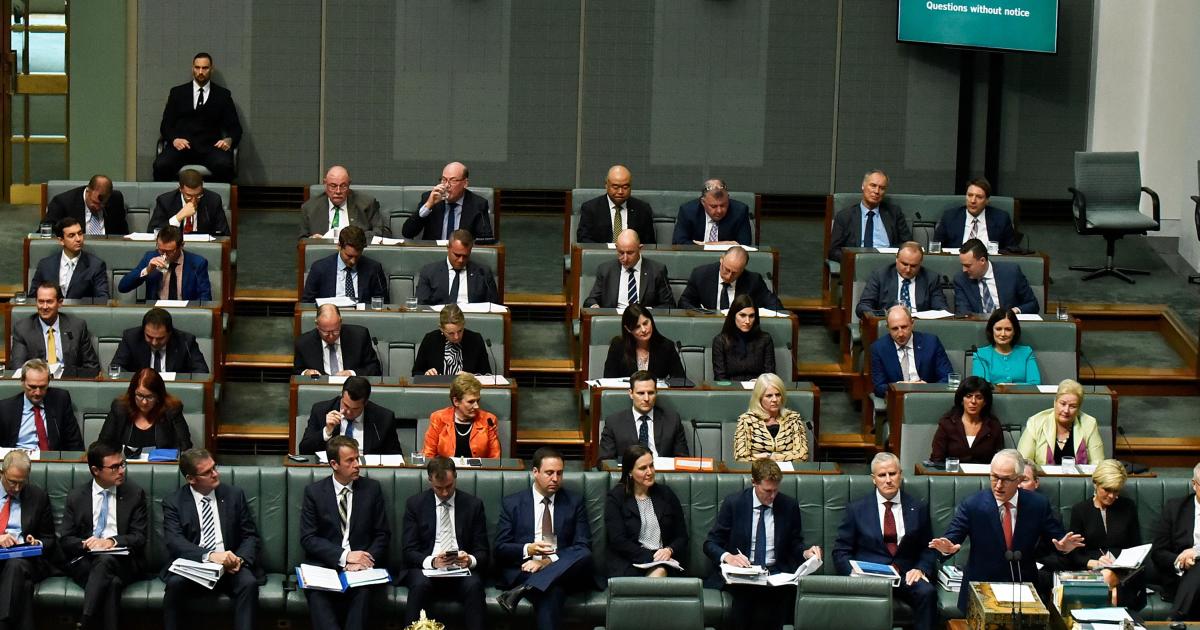The recent ABC Four Corners program (Inside the Canberra Bubble) about sexist conduct in Federal Parliament and the potentially exploitative power imbalance between parliamentarians and staffers highlights once again the subject of appropriate work practices and expected norms in the nation’s workplaces.
As the expression of the national will and Australia’s most high-profile workplace, Parliament is not just any workplace but one full of example and national role modelling. Get the culture right here and one can foresee more than a trickle down but a flood of expectation about how things should be done in the Parliament and elsewhere. With the issue raised so squarely, now is the time to examine, review, recommend and regulate what happens in Australia’s most symbolic and important workplace.
Luckily, we have an established mechanism and an experienced body to do exactly that. Whether it be through the auspices of the current secretary of the Department of Parliamentary Services, or the Prime Minister himself as the leader of the government, it is time for Australia’s Sex Discrimination Commissioner to be given the resources to conduct a national, independent survey of people who work or have worked in the Australian Parliament.
At its extreme, this would enable the community to gain greater insights into the nature, prevalence and reporting of sexual assault, harassment and bullying in the nation’s core democratic institution.

Scott Morrison could call for a review of Parliamentary culture and workplace practices.
But beyond the discovery of discernible manifestations of abuse, such a survey could uncover cultural issues behind such violations and bring attention to less openly egregious but nonetheless still damaging practices restraining collegiality, respectful engagement, equal treatment, equal opportunity for advancement and other inhibiting factors.
For the federal Sex Discrimination Commissioner, conducting such a survey and inquiring into workplace culture is the very essence of what she has long been doing. Most recently, in March 2020, as COVID lockdowns began, the commissioner Kate Jenkins launched her ground-breaking Respect@Work: Sexual Harassment National Inquiry Report. It built on work the Australian Human Rights Commission started in 2003 with four periodic surveys on the national experience of sexual harassment and, regrettably, showing sexual harassment in Australian workplaces is widespread and pervasive.
Australia has been a global leader in tackling sexual harassment. This goes back to the 1970s.
As the commissioner acknowledges in her preface, Australia has been a global leader in tackling sexual harassment. This goes back to the 1970s, flowing from the International Labour Organisation’s 1973 Convention on Discrimination, and continuing with the Commonwealth Sex Discrimination Act 1984, specifically prohibiting sexual harassment at work and establishing Australia’s Sex Discrimination Commissioner role.
This legislation also flowed from the UN Convention of All Forms of Discrimination Against Women adopted by the UN General Assembly and entered into force in 1981, with Australia signing on in 1983. The CEDAW Convention also represents Australia’s leadership with Australian international lawyers, including Jane Connors and Andrew Byrnes, key contributors to the Convention’s drafting, and Elizabeth Evatt the first Australian member of the CEDAW Committee (a body of 23 independent experts that monitors the progress of UN member states’ efforts to eliminate discrimination against women). Almost 30 years later, another Australian, Natasha Stott Despoja, was elected as a member for 2021-2024.
Since the inception of the role, all sex discrimination commissioners have identified the elimination of workplace sexual harassment as a key priority. Indeed, governments have involved the commissioner in tackling sexual harassment and discriminatory behaviour in a range of contexts.

In 2011, Elizabeth Broderick, a former Sex Discrimination Commissioner, undertook an exhaustive review of the ADFC and armed forces.
In 2011, then-commissioner Elizabeth Broderick was asked to conduct an independent Review into the Treatment of Women in the Australian Defence Force Academy, or ADFA, and in the broader armed forces. In response to the commission’s 2018 National Survey report identifying that a number of industries reported workplace sexual harassment prevalence rates higher than the national rate (33 per cent) including retail trade (42 per cent) and accommodation and food services (39 per cent), the Shop, Distributive and Allied Employees’ Association approached the commission to conduct a comprehensive survey of its members.
The commission conducted a national, independent survey of university students in 2016 to gain greater insight into the nature, prevalence and reporting of sexual assault and sexual harassment on campuses.
And the commission’s expertise has not only been confined to the workplace. At the request of Australia’s 39 universities, the commission conducted a national, independent survey of university students in 2016 to gain greater insight into the nature, prevalence and reporting of sexual assault and sexual harassment on campuses. The commission’s National Report on Sexual Assault and Sexual Harassment at Australian Universities called Change the Course outlined the commission’s findings on the prevalence and nature of sexual assault and sexual harassment on campuses.
As of July 2018, the majority of universities had implemented or committed to implementing the recommendations. These included working groups to develop action plans, training and education for students around respectful relationships, increasing the availability and visibility of support services, implementing a review of existing university policies and response pathways to identify and train staff members and student representatives most likely to receive disclosures, implementing practices to ensure information about disclosures and reports are collected and stored confidentially and expressing a commitment to conduct the national survey on sexual assault and sexual harassment every three years to continue to monitor progress.
The University of New England proactively then asked the commission to conduct an independent review of its colleges, as recommended in the Change the Course report. Universities are one environment in which many of our elected representatives have spent time, and individuals’ university experiences build and reflect norms of behaviour that ripple into societal norms impacting on future leadership practices.

Universities put themselves under the spotlight in 2016.
These norms and practices are of equal concern to the workplaces and environments of our central democratic institutions. The High Court and other courts have begun reviewing their own policies tackling sexual harassment following the revelations of Dyson Heydon’s conduct during his term as a High Court justice. Law societies and legal regulators are also reviewing whether someone is “fit and proper” to practice law and the professional behaviour necessary for men and women to feel safe not only in public, but when conducting their professional lives.
This work forms a critical prologue towards now tackling the very seat of the nation’s conscience. The commission’s next brief should be to survey the health of Australia’s Parliament when it comes to providing a best practice example of an Australian workplace.
The commission’s next brief should be to survey the health of Australia’s Parliament when it comes to providing a best practice example of an Australian workplace.
In doing so, Australia would not be out of step globally. Creating gender-sensitive parliaments is a concern internationally. The Inter-Parliamentary Union, a global organisation of national parliaments, has issued landmark reports on sexism and gender-based violence in parliament, looking at both female MPs and female parliamentary staff. It is time for Australia to lead the way again in this area. Australian scholars have already made contributions to reports about gender and Parliament during COVID, developing a primer issues paper by UN Women highlighting practical ways members of Parliament and parliamentary staff can take action to ensure COVID-19 response and recovery decision-making addresses challenges expressed by MPs and parliamentary staff adapting to new priorities and ways of working around the world. As of October, Australia had dropped to 50th on the global ladder of the proportion of numbers of women in the national Parliament. This may well be one of the factors impacting the culture of the workplace – but no doubt there would be other recommendations.
But first, we need the data to assess the current state of play for the writing is on the wall, if not on our national television screens. It is time for Australia’s Sex Discrimination Commissioner to conduct a national review of Parliament as a safe and equal workplace.
Professor Kim Rubenstein and Trish Bergin are co-directors of the 50/50 by 2030 Foundation at the Faculty of Business, Government and Law, University of Canberra. This article first appeared in The Canberra Times. You can read the original article here.





